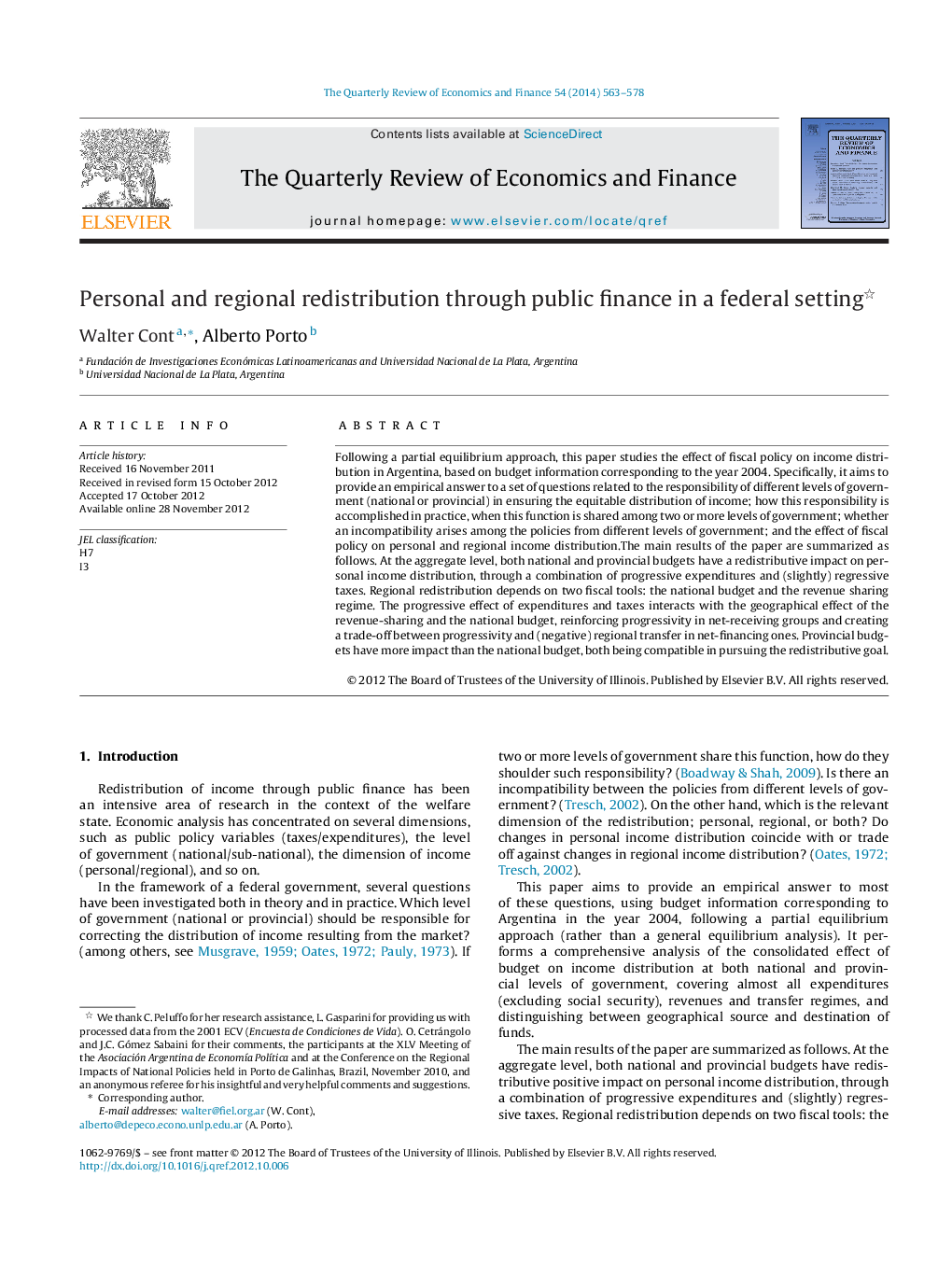| Article ID | Journal | Published Year | Pages | File Type |
|---|---|---|---|---|
| 982188 | The Quarterly Review of Economics and Finance | 2014 | 16 Pages |
Following a partial equilibrium approach, this paper studies the effect of fiscal policy on income distribution in Argentina, based on budget information corresponding to the year 2004. Specifically, it aims to provide an empirical answer to a set of questions related to the responsibility of different levels of government (national or provincial) in ensuring the equitable distribution of income; how this responsibility is accomplished in practice, when this function is shared among two or more levels of government; whether an incompatibility arises among the policies from different levels of government; and the effect of fiscal policy on personal and regional income distribution.The main results of the paper are summarized as follows. At the aggregate level, both national and provincial budgets have a redistributive impact on personal income distribution, through a combination of progressive expenditures and (slightly) regressive taxes. Regional redistribution depends on two fiscal tools: the national budget and the revenue sharing regime. The progressive effect of expenditures and taxes interacts with the geographical effect of the revenue-sharing and the national budget, reinforcing progressivity in net-receiving groups and creating a trade-off between progressivity and (negative) regional transfer in net-financing ones. Provincial budgets have more impact than the national budget, both being compatible in pursuing the redistributive goal.
►National and provincial budgets have a positive impact on personal income distribution in Argentina. ► The impact of expenditures and taxes interacts with the geographical effect of the revenue-sharing and the national budget. ► Provincial budgets and national budget are compatible in pursuing the redistributive goal.
